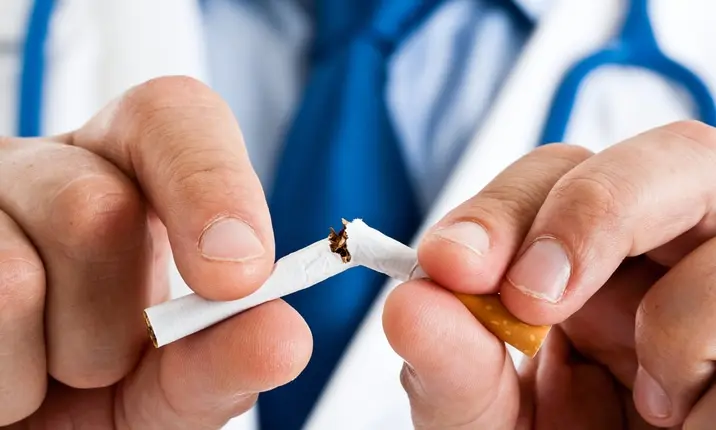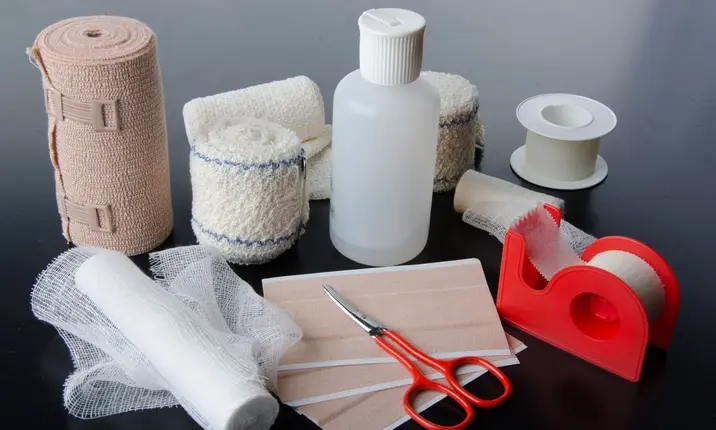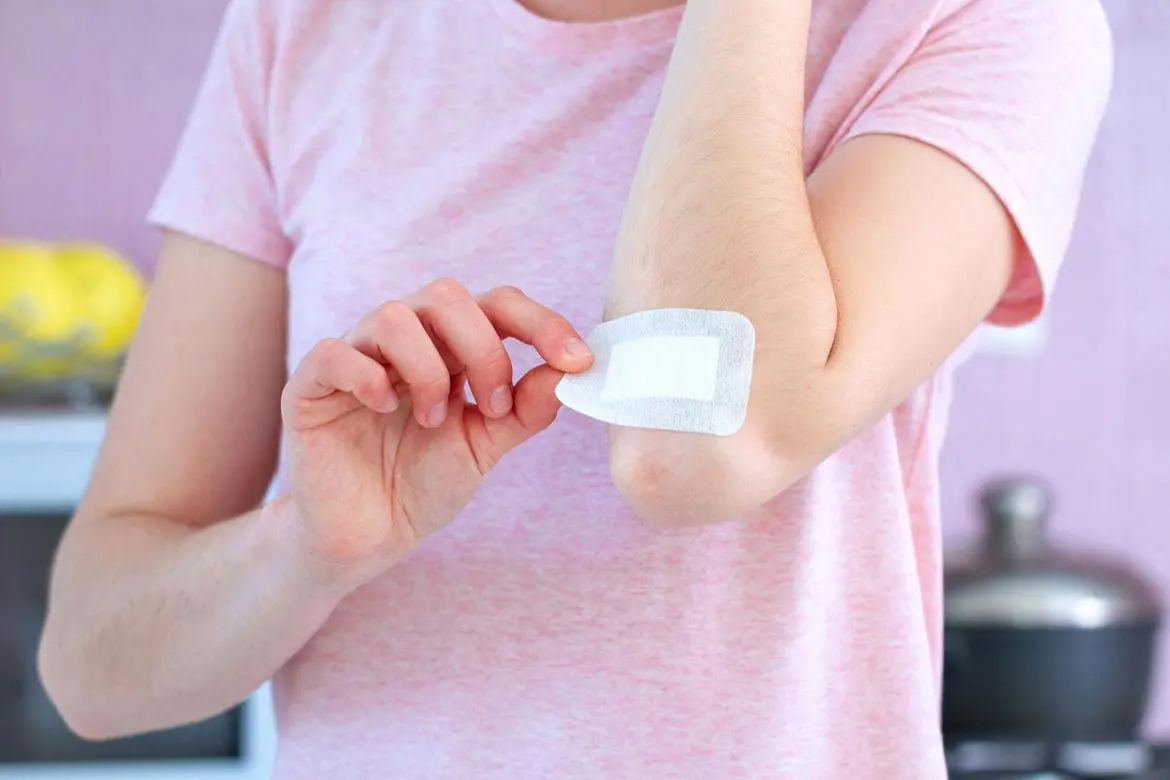There's a lot you can prepare to ensure that once you come out of the hospital, you’re doing all you can to aid a quick recovery.
Here are 10 simple life hacks that will put you in the best place to heal and get life back to normal once you are discharged from the hospital.
1. Accident-proof your home
Conduct a quick survey of your home to safety-proof it from falls. The last thing you want to have happen as you recover from surgery is to fall over!
- Get rid of clutter that could trip you over, so you have a clear pathway through the house when walking around.
- If you live in a house with stairs, consider rearranging your furniture so that you sleep downstairs for a while until you are fully steady on your feet.
- You may need to get up in the middle of the night, so ensure you have access to a light switch so you don't fumble around in the dark.
- Installing night lights around the house, especially en route to the kitchen and bathroom, is also a good idea.
- Night lights that plug into your wall sockets are a simple and affordable solution.
2. Follow your surgeon's instructions
It really goes without saying but do follow your doctor's instructions on what you should and should not be doing once you wake up from surgery.
If you are advised to stay in bed, this is what you should do until your doctor tells you otherwise.
If your doctor advocates getting up as soon as you can after surgery and moving around, then this is the goal you should be aiming for.
Don't be tempted to do more than you have been advised. If you push yourself too hard, rather than recovering quicker, you could be setting your recovery back.
The best exercise after surgery is walking. For most people, this can be started on the first day after your surgery with help until you can walk safely by yourself. At home, start with 5 – 10 minutes of walks every day and gradually try to add to your distance.
Some days you will feel better than others and will be able to accomplish more. Remember not to do too much, too soon.
3. Take your medications as prescribed
Remember that the doctor prescribes medication for a reason – to aid your recovery.
Even if you are someone who typically likes to avoid taking medication for fear of addiction or adverse side effects, post-surgery is the time to follow doctor's orders and take your medication as prescribed.
Some of the medicines your doctor may prescribe you with include antibiotics to avoid infection and painkillers for pain management.
Pain can interfere with sleep, your appetite and your mobility, and disruption of all 3 will only slow your progress to recovery. Naturally you want to be free of medication at some point, but let your body fully heal first.
4. Plan your meals
Nutrition is your body's fuel, and your body needs plenty of fuel as it makes its recovery.
Ask your doctor or nutritionist to set out a simple meal plan you can follow to ensure you are taking in the vital nutrients you need.
If you know you won't have much help around the house during your recovery period, you can plan the cooking of meals before your surgery and freeze some meals to simply defrost and heat up when needed.
Try not to skip meals. Even if you don't feel like eating, your body still needs the nutrition.
Best foods to eat after surgery to promote healing
Eating the right foods can help your body recover better and quicken wound healing. Choosing foods that are "whole" or unprocessed can provide your body with the nutrition it needs to recover well. These include:
Whole grains, fruits and vegetables
High-fibre foods such as whole grains, fruits and vegetables are important in preventing constipation, which is a common complication after surgery.
Lean meats and seafood
Lean meats from chicken, turkey and pork as well as fish are excellent sources of lean protein that is essential for repairing tissue and promoting regrowth.
Oils, nuts and seeds
Healthy oils and fats, such as those from olives, sunflower seeds, nuts, and avocado will give you energy and are necessary for the absorption of fat-soluble vitamins.
Dairy products and leafy greens
Milk, cheese, yogurt and dark leafy greens are good sources of calcium for the building and maintenance of bones and muscle functions.
5. Take the medical leave you are entitled to
Your health is more important than your work – a perspective you'll probably already have after facing surgery.
But still, there are patients who try to get right back to work from the hospital bed, mobile and laptop at hand.
After you wake up from surgery, you may think you're lucid, but really, you won't be in any mental state to be making business decisions.
So, take a break. That also applies after being discharged. If your doctor has given you 4 weeks of medical leave, use them. This is the time your doctor has determined your body needs to fully recover, and the best way to avoid a return hospital trip.
6. Appoint a 'chauffeur'
Find out from your doctor how long it will be before you can get back behind the wheel, then plan your travel arrangements accordingly.
Whether it's hiring a private-hire car or getting help from a family member to take on the unofficial role, you shouldn't drive before you've had the OK from your doctor.
That may mean 2 weeks or even 2 months. Your reaction times will be slower, and if you've had any type of abdominal surgery, such as hernia surgery, your core won't be strong enough for you to handle the physical demands of driving.
7. Attend your rehab appointments
If you've been referred to a physical therapist post-surgery, it is because you need the extra help to get your body back in shape. You may be tempted to think you can tough it out alone. But often, the weeks after surgery are the most crucial, and if you leave it too late, you run the risk of never making a completely full recovery. So be sure to keep all appointments and do your follow-up exercises at home too.
Physical rehabilitation after surgery will help you to improve movement and range of motion in the part of the body you had surgery. It is also helpful to strengthen your muscles and reduce pain. If you have had major surgery, your physical therapist will assist you to walk again and perform daily activities.
8. Quit smoking
If you were a smoker before your surgery, you'll be smoke-free while in hospital under recovery. Why not make this life event the stepping stone to quitting for good? If smoking isn't what puts you in hospital, it will certainly prolong your recovery time. And the health benefits you will derive from abstaining from smoking – such as lowering your risk of cancer and having a stronger immune system – for the rest of your life are surely worth the effort to quit.
9. Let someone else do the heavy lifting
By heavy lifting, we mean anything heavier than a kettle of water! Be aware of what your body now can and can't do, and go easy on any strenuous activity until the doctor gives you the go-ahead. Never try any lifting while alone, and get others to help with the housework such as vacuuming, cleaning and hanging the washing.
10. Look after your wound
Your surgical wounds should not get wet in the first 48 hours as this increases the risk of infection. After this time, follow your doctor's instructions on how to care for your wound. This may include:
- Take a shower rather than a bath so you don't soak the wound and make sure you pat the area dry afterwards.
- If you have been advised to keep your stitches dry, cover your stitches with waterproof dressing when you have a shower.
- Changing the dressing regularly as advised by your doctor and keep your wound clean.
- Avoiding heavy lifting or strenuous activity so that you don't risk opening up the wound.
Once you can remove the dressing for good, take care not to expose the scar to too much sun as scars tend to darken more with sun exposure.
When to see your doctor
Speak to your doctor if your wound opens, is bleeding, is oozing pus or is giving off a smell. You should also seek medical attention immediately if you have increased pain or a fever. Do not hesitate to contact your doctor if you have any concerns and aren't recovering as well as expected.
















